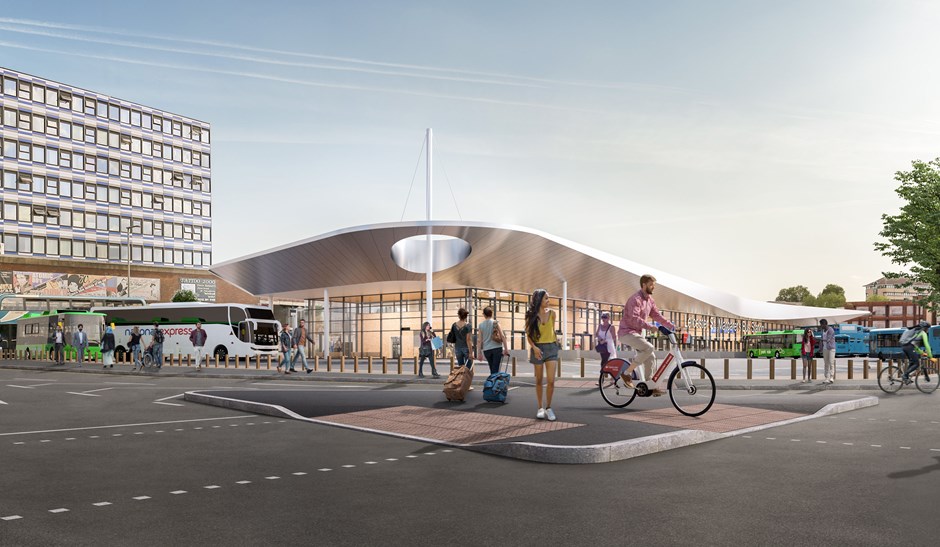Climate emergency strategy

Theme 2: Travel and transport
Leicester City Council will:
- Encourage an increase in walking and cycling through improving and promoting infrastructure and services
- Work with bus companies to increase use of public transport and introduce ultra-low emission buses
- Expand the network of electric vehicle charging points across the city
- Support car and bike sharing schemes such as car clubs
- Work with taxi and private hire operators to reduce carbon emissions and air pollution
- Enforce planning policies that encourage provision of essential services close to where people live and work along with access to walking, cycling and public transport
- Include climate emergency aims in transport policies and management of car parking and the highway network
- Continue to improve online access to council services and offer facilities in neighbourhoods to reduce the need for car travel
Cities are thought to be responsible for around 70% of global carbon emissions, including direct emissions and those generated through the production and consumption of goods and services.

Actions for 2020-2023 include:
- Implement a Covid-19 transport recovery plan including cycling and walking programme
- Deliver safe, high quality cycling and walking infrastructure across the city
- Set up an e-bike share scheme
- Provide a new park and ride scheme at Beaumont Leys
- Develop a city centre electric shuttle bus
- Promote sustainable transport through engagement with businesses and schools
- Consult on the introduction of a workplace parking levy to provide funding for sustainable transport projects
- St Margaret’s bus station is a new carbon neutral redevelopment which will provide energy efficiency measures as well as roof solar panels, electric bus charging points and secure storage for 150 bikes. Around 46 tonnes of carbon will be saved annually from the new bus station